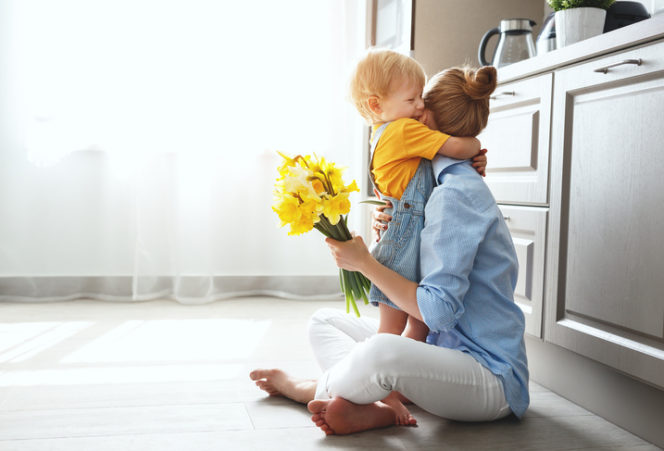More than two thirds of Irish women working at home do not want to return to paid employment. So says a newly released survey undertaken by ‘Solas’, the Department of Education’s Further Education and Training Authority. These findings amounted to ‘ a punch in the gut’ for Sonya Lennon, founder of the Dublin branch of a worldwide charity, ‘Dress for Success’, which helps women ‘develop tools to thrive in work and in life’.
One might expect more latitude and acceptance for women whose notion of ‘thriving’ is to remain at home with their children during their formative years. Describing the finding that lots of women are happy to be at home caring for their children as ‘a punch in the gut’ is a bit much.
The fact that appears to continually bypass women’s organisations is that keeping house, feeding and raising a family is important work and for many women it is more valuable that paid employment, especially when most jobs are not particularly fulfilling.
Someone has to do this work and that someone is, in practice, usually a woman. If she is being paid to do it for other women you can depend on it she will be also doing it for herself when she gets home. For such women, life in the workplace and life in the home is one continuum of mops and pans, brushes and buckets and the rest of the paraphernalia of domestic life. It is doubtful if the women who take up the duties of childminding and housekeeping for other women ever go through the doors of Dress for Success. It is not improbable though that many of the women who do will ever earn enough to pay someone to pick up the domestic slack for them. They and their partners will have to take that on as well as holding down the day job. Is that a good deal for women? Is that a good deal for young families? Many would say no. And they are as entitled to have their views respected as those who take a different stance.
‘Dress for Success Worldwide’ is certainly having a moment. And it has equally successful clones. One of the very first charities that Megan Markle, Duchess of Sussex became patron of in the UK was ‘ Smart Works’. Like ‘Dress for Success’, ‘Smart Works’ starts its female empowerment programme at the wardrobe. With the stylish, successful Markle endorsing the brand, the road to economic independence stretches far beyond what most women can realistically aspire to. Very few will attain Markle’s level of professional and financial success, not to mention go on to marry a prince and live in a palace. Nor will they come anywhere close.
Are women and girls being captivated by a new fairytale? Is ‘ having it all’ the new ‘happy ever after’? Women like Markle and Sheryl Sandberg, of ‘Lean In’ fame, earn enough to enable them to work away from home with greater ease than most women because they can hire people to take care of the home, and anyway, their day jobs are probably very rewarding. Most women (and men) are not in this position. They work out for reasons of economic necessity not empowerment. There are also women, as the Solas survey found, with considerable earning potential who nevertheless choose to stay at home because they feel they it is important to care for their own children, during the early years in particular.
What is comes down to is respecting women’s choices. Supporting one choice (paid work) while deploring or undervaluing another (work in the home) is not about empowering anyone or anything except an economic model that needs much more careful evaluation for its impact on the health and wellbeing of both women and men, and most of all the children who don’t have a choice in the matter.

















